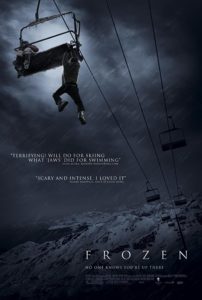Shutter Island is one of those movies that Hollywood (in the collective, generic sense) manages to abuse badly and thereby annoy me. The previews have been going for at least six months, with the obligatory gap in the middle when they realize that they don’t know when they’ll release it after all, and hadn’t they better wait and find out? But then, after the gap, right back to the same previews as before. Plus, separately, the previews themselves were horrid and revealed to me everything about the movie.[1] Still, good cast led by a good director and in a beautifully dreary setting means that for the bargain price of a free day-ahead sneak preview, I was more than willing to go see just how it turned out, regardless.
And do you know, there was a period in the middle-to-late section of the movie where they actually had me doubting my preview-based conclusions? Ultimately, I found myself correct all over again, just like I’d known from the start, but despite everything, I did not walk out of the theater pissed, nor even mildly annoyed save at myself for getting briefly suckered. Because, the journey really was the worthier part, this time around. Turns out that, just as with rewatching an old favorite, knowing the outcome doesn’t mean you can’t still enjoy the ride. Oh, and speaking of engrossing and well-acted psychological thrillers, I’m nearly positive that I recognized at least two interior sets from the incredible Session 9.
[1] Look, if you know what I mean by this, they’ve probably already done the same to you too. If not, just don’t go looking for it, I guess?
 There’s this movie,
There’s this movie,